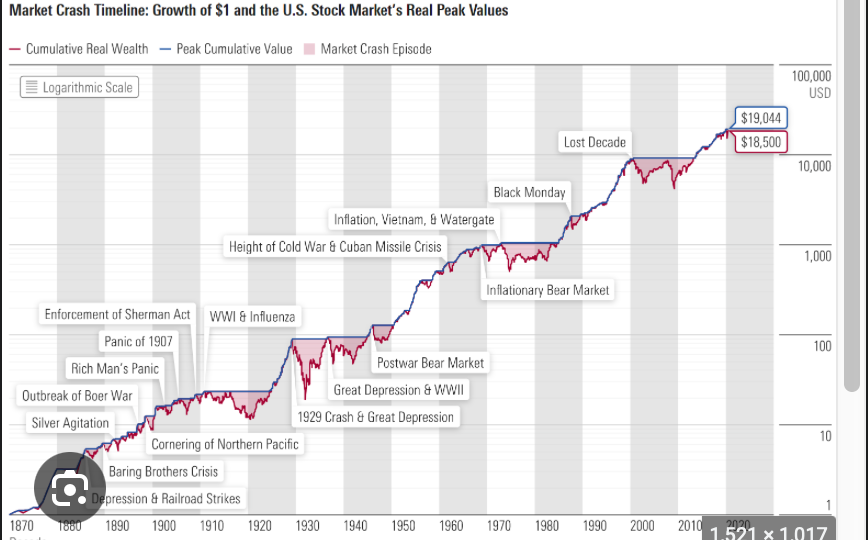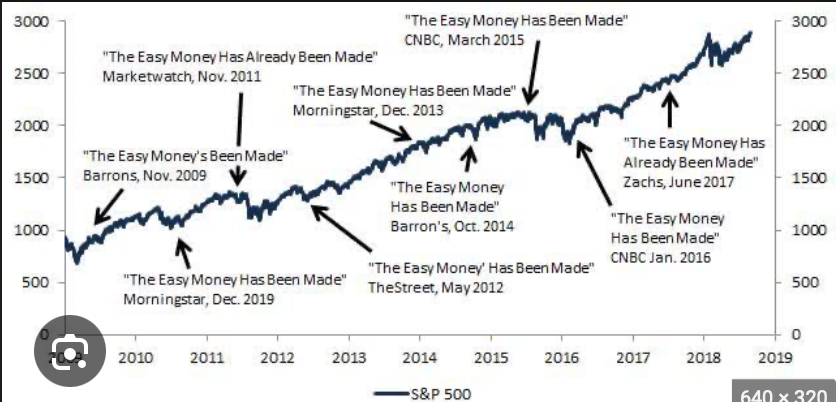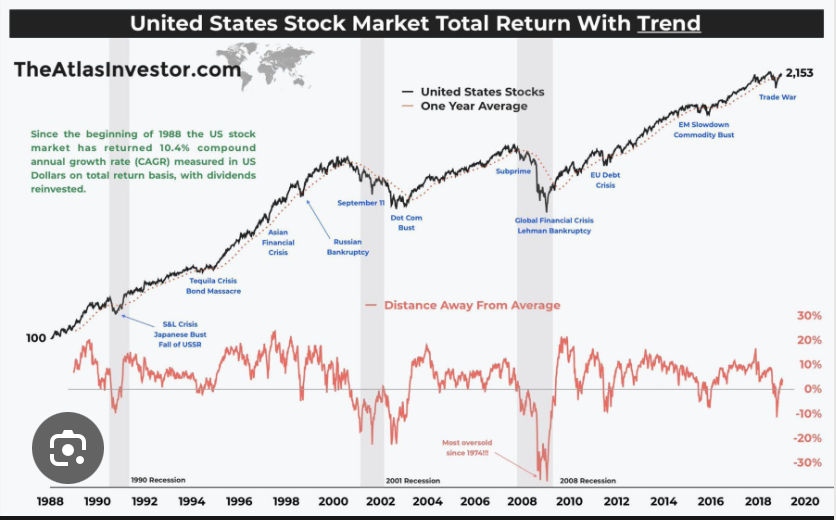June 23, 2023
(GETTING WEALTHY IS ONE THING; STAYING WEALTHY IS ANOTHER)
Friday, June 23, 2023
Hello everyone,
I thought I would dive into some psychology around money today. In my personal opinion, I don’t think enough emphasis is placed on this area. Most people just focus on their spreadsheet and the numbers – and looking at whether they are in profit or loss. But there is so much more to making and keeping money than just counting the numbers. It really involves your behaviour around money.
Getting wealthy and staying wealthy involve different skills.
Getting wealthy involves taking risks, being optimistic, and putting yourself out there. For instance, you all took a risk subscribing to my product, and some of you are also subscribers to John’s product. But, if you don’t take some risks, you will stay in the same place.
Staying wealthy requires a certain amount of frugality and an element of paranoia. In other words, you need to be wise to the possibility that what you have made in the past ten years or past two years can be taken away from you just as quickly. Furthermore, it also requires acceptance that at least some of what you have made is attributed to luck. In other words, you placed that trade that John or I sent out at just the right time and got a great price and then you closed it at maximum profit. You were in the right place at the right time. What I am trying to highlight here is that you can’t be complacent. It becomes more about survival through all the financial storms that have happened in the past and are arguably ahead of us.
It must be the cornerstone of your strategy. A survival mentality is key with money.
We all must learn to survive the ups and downs we will inevitably experience over time.
So, how do we do this?
Who can we look to and learn from?
Let’s look at Warren Buffett for a moment. There are numerous books written about this man and his strategy on how to invest and become wealthy. But let’s investigate the things that he didn’t do.
He didn’t get carried away with debt.
He didn’t panic during the 14 recessions he lived though.
He didn’t attach himself to just one strategy.
He didn’t limit himself to one worldview.
He didn’t sully his business reputation on one passing trend.
His survival gave him longevity – he didn’t burn himself out and quit and retire.
Warren Buffett and Charlie Munger had another partner when they started Berkshire Hathaway.
His name was Rick Guerin. Unlike Buffett and Munger, Guerin was in a hurry to make money. During the 1973-1974 downturn, Rick was positioned with margin loans, so when the stock market went down almost 70% in two years, he got margin calls. Ultimately, Rick ended up selling his Berkshire stock to Warren at under $40 a piece. He was forced to sell – a position you never want to be in.
Most people would wonder, how could this have happened to him; a person that was so smart with money and was surrounded by great mentors.
It is important to remember that having an edge and surviving are two different things.
The first requires the second.
You must become unbreakable.
Compounding doesn’t rely on earning big returns, merely good returns, sustained, uninterrupted for the longest period of time, especially in times of chaos and havoc. This is the strategy that will always win.
Planning is important – but the most important plan is to plan on the plan, not going according to plan.
Sounds weird, right, but doing this gives you some breathing space.
Financial and investment planning are critical because they let you know whether your current actions are within the realm of reasonable.
But remember, few plans of any kind survive their first encounter with the real world. We’ve all been there, right?
If you are projecting your return, your income over the next 25 years, think about all the big stuff that has happened over the last 25 years, that no one could have foreseen. I’m talking about those “black swans.”
September 11.
A housing boom and bust that caused 10 million Americans to lose their homes.
A financial crisis that caused almost 9 million Americans to lose their jobs.
A record-breaking stock market rally that ensued.
And a Corona Virus that shook the world.
A plan is only useful if it can survive reality.
A future filled with unknowns is everyone’s reality.
So, there should be room for error in everyone’s plan.
And please, turn off the noise of the talking heads on TV. It will manipulate your thinking and psychology about when to invest. The best investment strategy is to buy small parcels often regardless of whether we are heading into recession, are in a recession or there has been some major crisis. The most successful strategy can seem quite boring.
In an annual general Berkshire Hathaway stockholder meeting in 2013, Warren Buffett said that he has owned abut 400-500 stocks over his lifetime but has made most of his money with only about 10 of those stocks which outperformed. Charlie Munger admits that if you removed just a few of Berkshire’s top investments, its long-term track record is pretty average. When we pay attention to role models’ successes, we can overlook that their gains came from a small percentage of their actions. In other words, maybe they are right just as often as you or me.
It's not whether you are right or wrong that’s important, but how much you make when you’re right and how much you lose when you’re wrong. (George Soros)
So, you can be wrong half the time and still make a fortune.
We underestimate how normal it is for a lot of things to fail which causes us to overreact when they do.
I’ll be writing more pieces about the psychology around money because I think it is important to gently nudge you into thinking about your behaviour in relation to investment/trade decisions.
A little bit of housekeeping now:
For those of you who have not filled out this survey about peer tutoring, could you please do so by clicking on the link below? Once I know who would like to participate, I can go ahead and begin grouping people together.
Here is the link to the Survey Page https://www.madhedgefundtrader.com/trader-survey/
Wishing you all a magical weekend.
Cheers,
Jacquie








